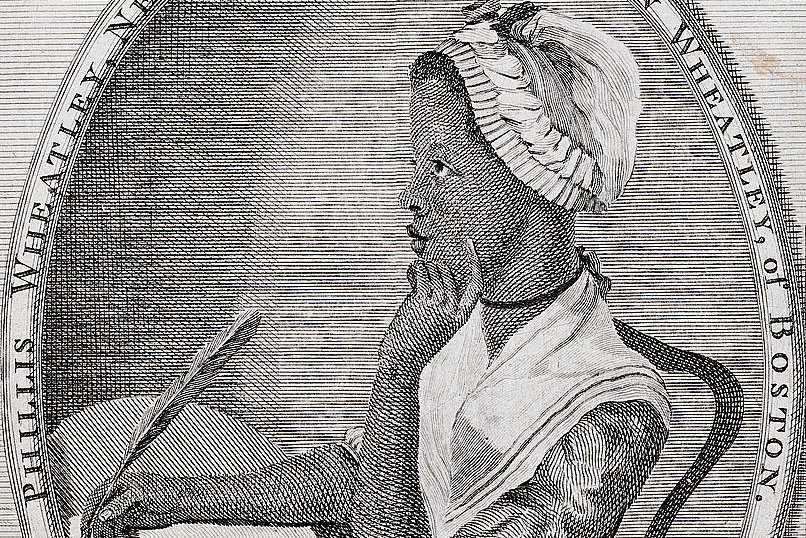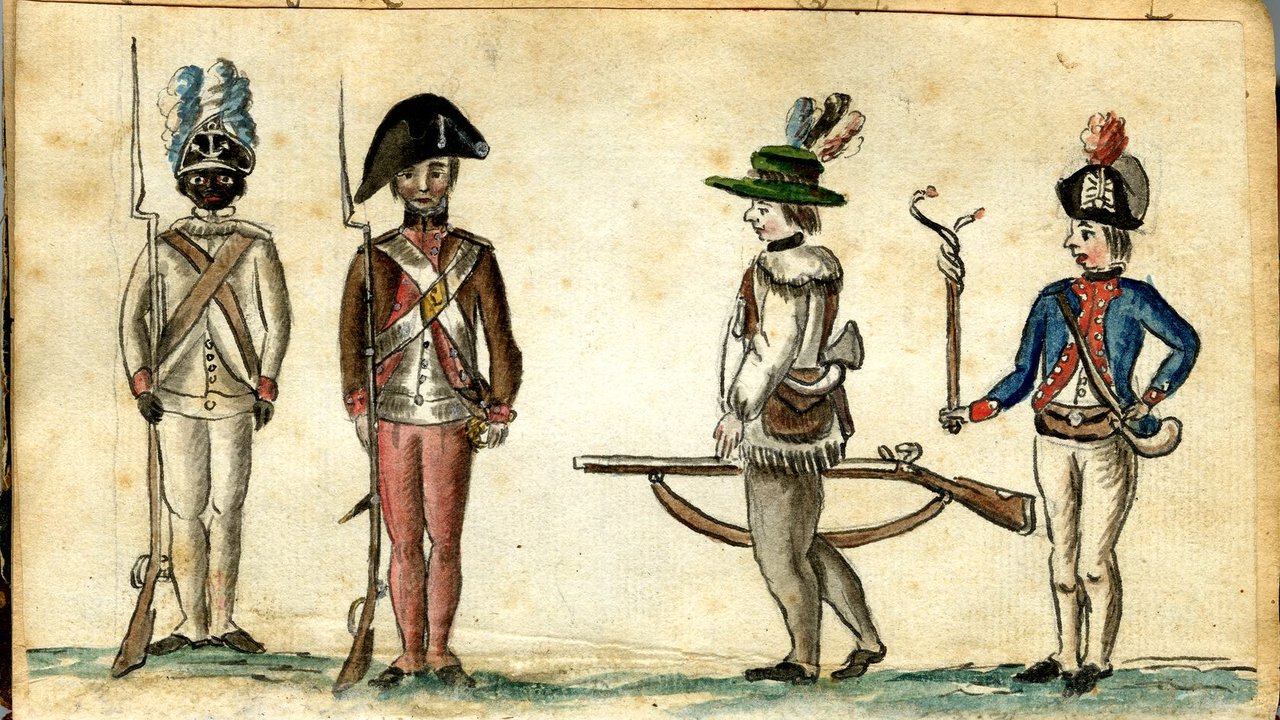
Phillis Wheatley Peters (c. 1753-1784)
Phillis Wheatley Peters was likely born in 1753, somewhere in West Africa. We don’t know the name she had before her enslavement. When she arrived in Boston, Massachusetts, on July 11, 1761, she was purchased by John Wheatley, a local merchant and tailor, for his wife Susanna. The Wheatleys renamed her after the very ship that had been used to transport her and other enslaved people across the Atlantic, The Phillis.1
It wasn’t long after she became enslaved by the Wheatleys that Phillis began showing signs of a sharp mind and talent for language. It is likely the Wheatley’s children, Mary and Nathaniel, began tutoring Phillis after their own lessons. By the age of 12, though, Wheatley Peters was already reading Greek and Latin, and two years later she wrote her first poem.2
Wheatley Peters gained popularity among the Wheatley’s inner network, slowly becoming a recognizable poetic genius of the day. By the end of 1773, she was able to publish a book of poetry, entitled Poems on Various Subjects, Religious and Moral. She became the first African-American to have a book of poetry published, and became known by many for her talents. Shortly after the publication of her work, the Wheatleys manumitted her.3
Towards the end of the 1770s, Wheatley Peters met and married John Peters, a local Black entrepreneur. By many accounts, John’s business ventures failed one after another, and the two quickly fell into poverty. She attempted to publish a second volume of poems in 1779. However, with both of her former enslavers dead, she lacked access to a network of patrons capable of garnering support for her work.4
After John was imprisoned for debt in 1784, Wheatley Peters was forced to work as a maid. At 31, she had already lost one child, and her remaining infant son would also die in childhood. On December 5, 1784, in relative obscurity, she died of complications from pneumonia after giving birth to a third child, who also died later that day.5
Remembered today for her poetic talent and as an early example of Black intellectual equality, her poetry faces some criticism for seemingly accepting slavery and refusing to push back against racism of the day. Her work, however, was vital in Black history, and while less radical than later artists, she nonetheless challenged the ideals of her time in her own way.
Black Americans and the American Revolution
By the time of the American Revolution, there was a sizable Black population in the colonies. Black Americans were involved in several ways, and witnessing the revolution around them was just one such way.
As witnesses to a unique time in history, Black Americans offered their own opinions and observations of the events around them. For some, this proved crucial in finding and fighting for freedom. For others, this meant they could contribute their own opinions to the chorus of revolutionary-era rhetoric.

Sources
- Vincent Carretta, Phillis Wheatley: Biography of a Genius in Bondage (University of Georgia Press, 2011), 18-20.
- Camille S. Owens, “‘I, Young in Life’: Phillis Wheatley and the Invention of American Childhood,” Early American Literature 57, No. 3 (2022), 722-733.
- Carretta, Phillis Wheatley, 137-138.
- Carretta, Phillis Wheatley, 172-190.
- Carretta, Phillis Wheatley, 177.
- Phillis Wheatley, Poems on Various Subjects, Religious and Moral (A. Bell, 1773), 114–15.
- Frank Shuffelton, “On Her Own Footing: Phillis Wheatley in Freedom,” in Vincent Carretta and Philip Gould, eds., Genius in Bondage: Literature of the Early Black Atlantic (The University Press of Kentucky, 2001), 177–78.
- Phillis Wheatley, Poems on Various Subjects, Religious and Moral (A. Bell, 1773), 18.
- Marsha Watson, “A Classic Case: Phillis Wheatley and Her Poetry,” Early American Literature 31, No. 2 (1996), 122–24.
- Phillis Wheatley, Poems on Various Subjects, Religious and Moral (A. Bell, 1773), 114–15.
- Britt Rusert, “‘The World Is a Severe Schoolmaster’: Phillis Wheatley’s Poetry of Domination and Submission,” Early American Literature 57, No. 3 (2022), 786; R. W. B. Lewis and Nancy Lewis, eds., American Characters: Selections from the National Portrait Gallery, Accompanied by Literary Portraits (Yale University Press, 1999), 380.
